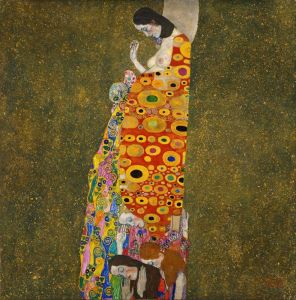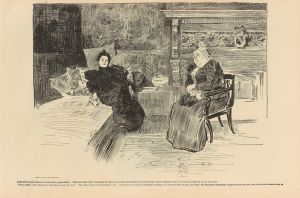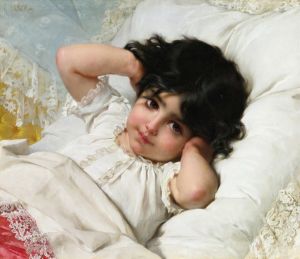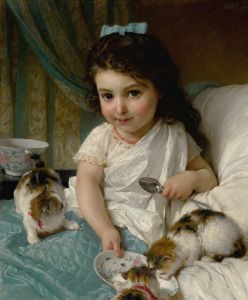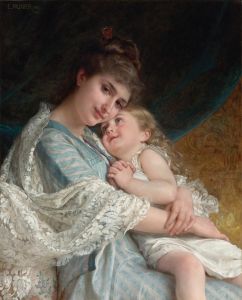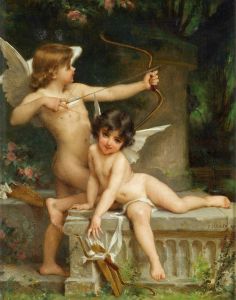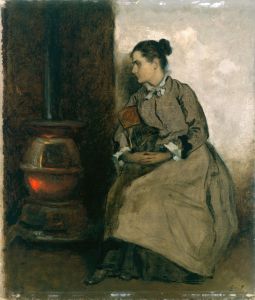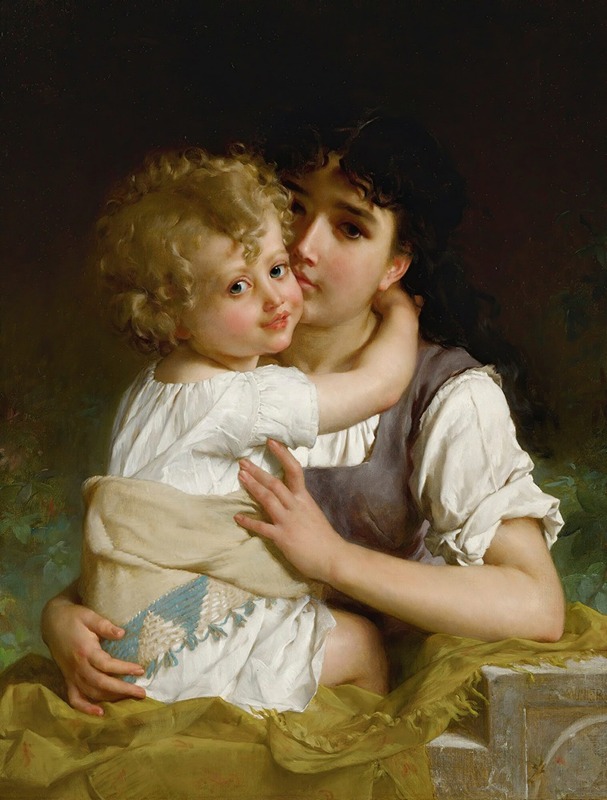
Maternal Affection
A hand-painted replica of Émile Munier’s masterpiece Maternal Affection, meticulously crafted by professional artists to capture the true essence of the original. Each piece is created with museum-quality canvas and rare mineral pigments, carefully painted by experienced artists with delicate brushstrokes and rich, layered colors to perfectly recreate the texture of the original artwork. Unlike machine-printed reproductions, this hand-painted version brings the painting to life, infused with the artist’s emotions and skill in every stroke. Whether for personal collection or home decoration, it instantly elevates the artistic atmosphere of any space.
Émile Munier was a French academic artist known for his detailed and sentimental paintings, often depicting children and domestic scenes. One of his notable works is "Maternal Affection," which exemplifies his skill in capturing tender moments and the emotional bonds between mother and child.
Born in Paris on June 2, 1840, Munier was initially trained in the decorative arts, working at the Gobelins Manufactory, which was renowned for its tapestries. He later studied under the tutelage of William-Adolphe Bouguereau, a prominent academic painter of the time, whose influence is evident in Munier's meticulous technique and choice of subject matter. Munier's works are characterized by their realism, attention to detail, and the ability to convey warmth and intimacy.
"Maternal Affection" is a prime example of Munier's focus on family themes. The painting depicts a mother tenderly holding her child, capturing a moment of serene intimacy. The composition is carefully balanced, with the figures often placed in a domestic setting that enhances the sense of closeness and security. Munier's use of light and shadow, along with his delicate brushwork, brings a lifelike quality to the figures, emphasizing the softness of the skin and the gentle expressions on their faces.
The painting reflects the 19th-century European interest in themes of motherhood and family, which were popular among artists and patrons alike. This period saw a growing appreciation for artworks that celebrated domestic life and the virtues of family, aligning with the societal values of the time. Munier's ability to evoke emotion through his art made his works appealing to collectors who valued both technical skill and the portrayal of universal human experiences.
Munier exhibited his works at the Paris Salon, the official art exhibition of the Académie des Beaux-Arts, where he gained recognition for his talent. His paintings were well-received, and he became known for his ability to capture the innocence and beauty of childhood, as well as the nurturing aspects of motherhood. "Maternal Affection" is a testament to his dedication to these themes, showcasing his ability to blend technical precision with emotional depth.
Throughout his career, Munier continued to explore similar themes, producing a body of work that remains appreciated for its charm and technical excellence. His paintings are held in various private collections and museums, where they continue to be admired for their beauty and emotional resonance.
Émile Munier passed away on June 29, 1895, but his legacy endures through his art, which continues to captivate audiences with its timeless portrayal of love and affection. "Maternal Affection" stands as a representative piece of his oeuvre, embodying the qualities that made Munier a respected figure in the world of 19th-century academic painting.





